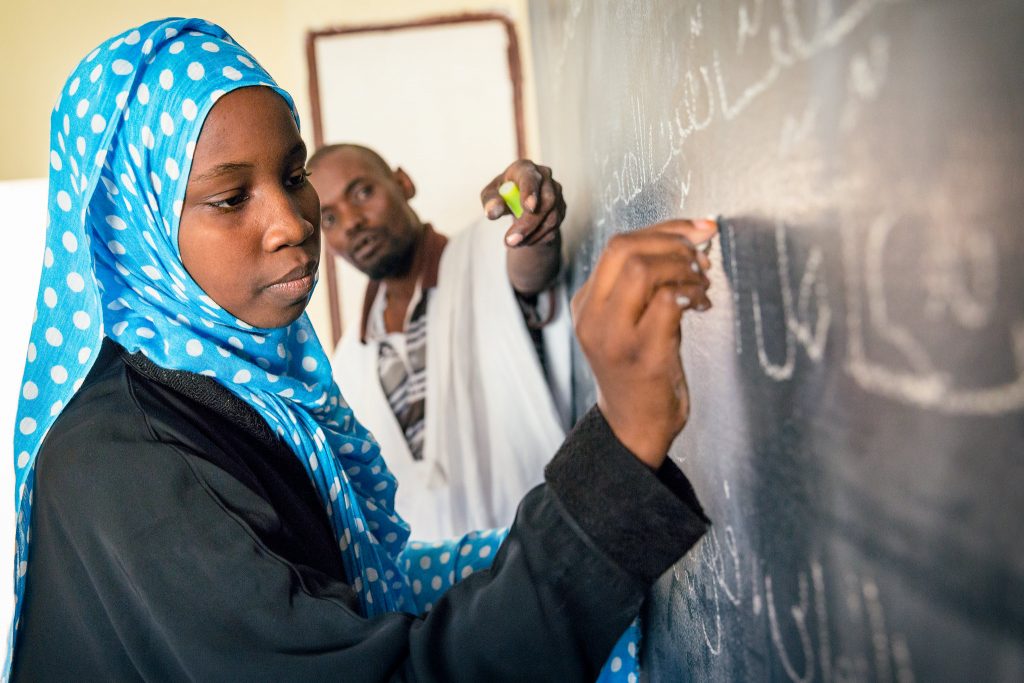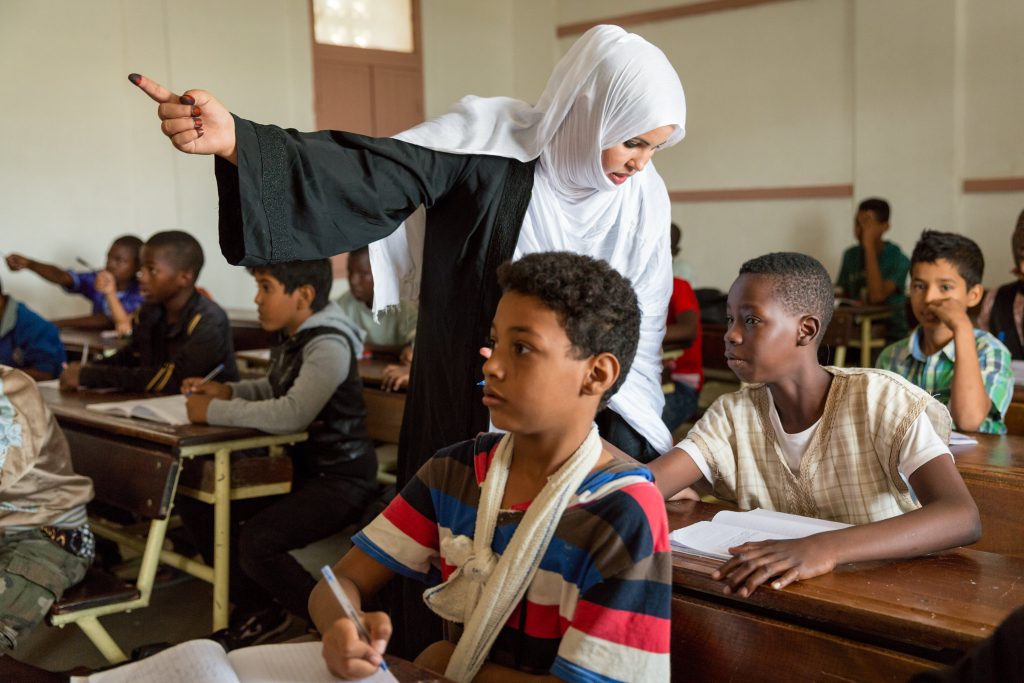GPSA projects
Improving Primary Education Services through Citizen Feedback
Project: Transparency of the Mauritanian Education Budget (TOME)
Country: Mauritania
Sector: Education
Executing Agency:Eco-développement
Grant Amount: $605,000
Closing Date: January 2021


Frame and Challenge
Mauritania is a mostly desert country with a population of 4.3 million as of 2016. The nation is a modest oil producer and has a wealth of natural resources, particularly in the mining sector. Mauritania’s natural water resources have some of the most abundant fish stocks in the world. Still, Mauritania faces multiple development challenges that include the efficient use of revenue derived from natural resources, competitiveness, diversification, and poor governance. The country’s military coup was followed by a transition to democracy from 2005-2006, after which point Mauritania was granted debt relief under the Heavily Indebted Poor Countries (HIPC) Initiative and the Multilateral Debt Relief Initiative (MDRI). The international community suspended most activities in the country after another coup in 2008; the World Bank reengaged in 2009, following an election cycle and greater political stability, which led up to a peaceful presidential election in 2014.
Despite recent robust economic growth, Mauritania’s poverty rate remains high, especially in rural areas. Reducing inequality is a key challenge which can be overcome with a commitment to good governance, particularly in improving the mining sector’s performance and in the supervision of State enterprises. Education can be mobilized as a significant tool for reducing poverty and inequality and laying the ground for sustaining economic growth, which the country has already experienced. The quality of school conditions in Mauritania, however, remain challenging. Students experience broken-down facilities, lack of table benches, and missing school supplies. The government lacks mechanisms for systematically listening to citizens’ claims on these issues, and thus is failing to treat the average curriculum acquisition rate by students in primary school, which now falls below 40%.
Solution
This project for improved education began in 2017, led by Eco-développement, an organization which exclusively seeks to develop schools in Mauretania. The targeted beneficiaries include students as well as their parent associations from about 40 schools in the provinces of Nouakchott South (Wilaya) and Tagant. The National Federation of Parents’ Association of the Islamic Republic of Mauritania and the Basics Education Project will use the data generated by the project to advise policy design and improve educational outcomes.
The data and results will arise from three components, including:
- establishing capacity development and a partnership framework for civic monitoring of basic education,
- generating citizen feedback through social accountability processes and collaborative engagement with public sector institutions, and
- facilitating knowledge and learning to enhance effectiveness of social accountability interventions and project management.
This will be accomplished to fulfill the ultimate objective of improving transparency of the basic education budget by monitoring and evaluating its implementation and quality through social accountability tools in the two targeted provinces of Mauritania.
Outcomes
The project for improving primary education services is scheduled to continue until 2021. Already, the project has enjoyed the following outcomes from the planning and early implementation stages, including but not limited to, that:
- The project is building capacity for civic monitoring of basic education services, as well as facilitating constructive dialogue between civil society and government at local and central levels. This feedback will help education authorities improve budget allocation and implementation.
- Partnerships are being established between local civil society groups, the National Federation of Parent Associations and the National Ministry of Education to improve quality of access to education, as well as student and teacher retention.
Lessons Learned
This project is in its early stages, and further lessons learned will be added as the project continues. The primary education project has already produced various lessons, which inform this and future projects’ planning and implementation:
- As a result of stakeholder dialogue, the idea of structuring local actors in the Participatory Monitoring Committees at the departmental and school levels emerged, and became an effective means of solidifying the collaborative engagement of civil society and the government to identify and jointly solve problems related to budget transparency and the quality of education.
- The first six months of the project saw great evolution of the social accountability process and saw the need for changes to its operationalization. The operationalization required early clarification, especially at the local level. Such refinement work required setting up a formal partnership framework with stakeholders at the national level and the Participatory Monitoring Committees at the local level.
project evaluation
Learn more
Click on the following links to learn more about Eco-Dev and the project for improved education in Mauritania:
Website: Eco Dev
